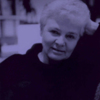Susan Zuccotti
Author of The Italians and the Holocaust: Persecution, Rescue, and Survival
About the Author
Susan Zuccotti won the National Jewish Book Award for Holocaust Studies for her first book, The Italians and the Holocaust: Persecution, Rescue, and Survival. She is also the author of The Holocaust, the French, and the Jews. She received a Ph.D. in modern European history from Columbia University show more and has taught Holocaust history at Barnard College in New York and Trinity College in Hartford show less
Works by Susan Zuccotti
Tagged
Common Knowledge
- Birthdate
- 1940
- Gender
- female
- Nationality
- USA
- Education
- Columbia University
- Occupations
- professor
historian
writer - Awards and honors
- Premio Acqui Storia
Members
Reviews
Awards
You May Also Like
Statistics
- Works
- 5
- Members
- 358
- Popularity
- #66,978
- Rating
- 3.9
- Reviews
- 4
- ISBNs
- 16
- Languages
- 1















The cause of his reluctance to do so stems from a number of factors. The Catholic Church hierarchy of the time still largely held the view that Jews were hostile to Christianity because of the death of Christ and that they were therefore as a group damaging the Christian religion. So they were opposed to Jews on religious grounds, albeit that Pius XII and his predecessor Pius XI (who died in early 1939) rejected the notion that Jews or anyone else should be regarded as inferior races. Condemnation by members of the Church hierarchy of anti-Jewish laws focussed on the marriage laws as they affected Jews married to Christians and those Jews who converted to Catholicism, rather than the broad mass of Jewish people. Throughout the war statements made were few and far between and couched in very general and rather coldly bureaucratic language. The author identifies a number of factors for this as well as the historical attitude towards Judaism as a religion. There was an ethos of self-deception and an unwillingness to believe that the repressions could be as bad as some were reporting (this attitude was, of course, by no means restricted to the Catholic Church). There was a to some extent genuine fear that reprisals might take place against Catholics or Jews baptised into the Catholic faith if the Church spoke out in strong terms against the Holocaust. There were even fears the Germans might invade the Vatican City itself. But I think the main reason she identifies was a restricted moral vision by many members of the hierarchy, an exclusivist attitude towards the concerns of Catholics that in such a desperate situation was a wholly inadequate moral response to genocide of another racial/religious group, coupled by Pius XII's own sheltered life and lack of direct experience of human suffering.
His attitude can be contrasted with that of many local Catholic bishops and priests, monks and nuns who did selflessly protect Jews by hiding them in religious institutions or helping them to escape (some were even sheltered in the Vatican by lower members of the hierarchy). These Catholics did have experience of suffering and reached out to help the Jews and are a credit to their faith and to human dignity in general. But there is no evidence that their efforts were as a result of a direction from the Pope or any other Vatican official, even though after the war Pius XII was praised by many Jews and others for saving them, largely because he was of course seen as the embodiment of the Church and it was assumed he must have directed it. But he did not. And his silence, while some of the individual reasons for it have some validity, was in the end, I think, an overall failure of moral courage for which he must be criticised - even more so as he continued his silence even after Rome was liberated and the German threat to the Vatican was lifted. He was not "Hitler's Pope" as some have called him - he was not a Nazi sympathiser or believer in racialist policies, but his stance was a stain on his office and a stark contrast to the moral courage of many ordinary Catholics and others.… (more)